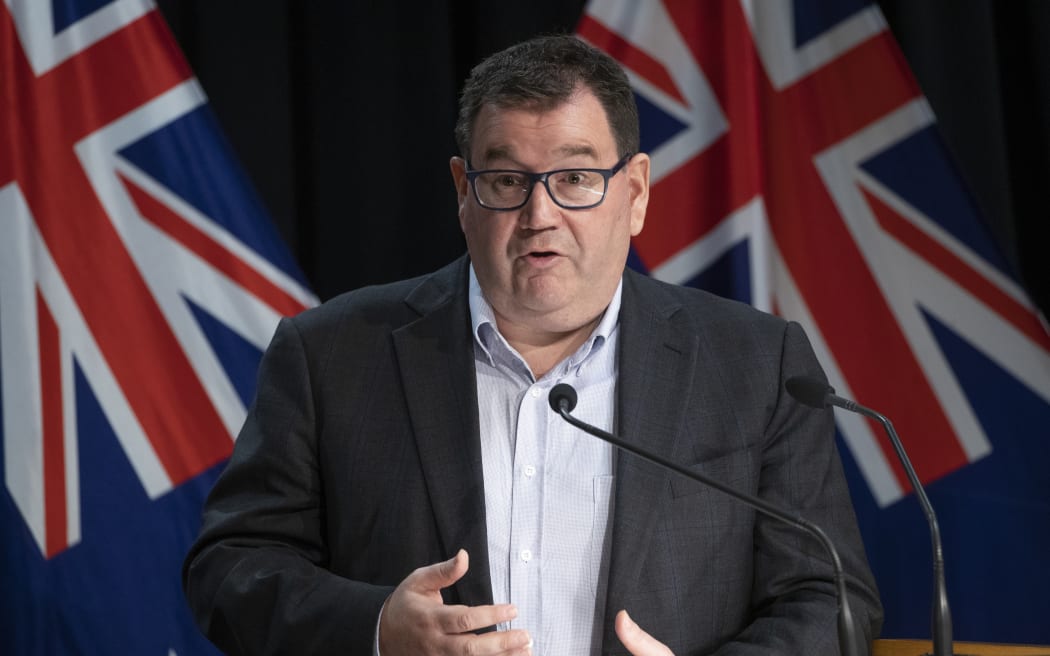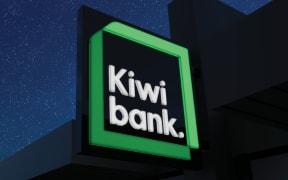Kiwibank risks becoming a "zombie bank" under direct government ownership, according to a KiwiSaver fund manager.

Simplicity mangaing director Sam Stubbs. File photo Photo:
The government will buy out the Super Fund, ACC and NZ Post to take complete control of Kiwibank, in a deal that values the company at $2.1 billion.
Managing director of the Simplicity not-for-profit KiwiSaver provider Sam Stubbs told RNZ the government move was a setback for competition.
"Kiwibank was set up to be the national champion bank and to really create proper competition for the Australian banks and it has unfortunately not succeeded in doing that, it's never had more 5 percent market share."
The government said it intended to keep a sensible distance between itself and the day-to-day running of the bank but will be open to proposals to help the company grow.
But Stubbs said the government had starved the bank of capital and its mixed ownership model never gave it the financial support needed to take on the four big Australian owned banks.
"What we have now is a bank which, many years after foundation, is really a small-part player in the market and really risks turning into a zombie bank unless the government brings out its cheque book and recapitalises it to properly compete with the Australian banks," Stubbs said.
Unless that happens, he said, Kiwibank would remain a "one armed boxer in a ring with four heavyweights".
A recent report from KPMG shows that Kiwibank had just over $30 billion in assets but the big four Australian banks had between $123b and $190b, however, Kiwibank's chief executive Steve Jurkovich has said outside capital was not a priority for the bank.
KPMG head of banking and finance John Kensington told RNZ that Kiwibank had done "remarkably well", as it had managed to expand from being one of the smaller banks, which had total assets of between $2b tand $6b, to its current size.
The change in Kiwibank's ownership structure suggested the government was prepared to provide financial backing when needed, he said.
"The government's coffers are not indefinitely deep and at the moment, there seems to be a lot of calls for money to be spent differently be it in health and education ... so they'll definitely have to line up there," Kensington said.
"As a wise investor, the government will have factored that in and realised that, at various points, it will have to give capital.
"So, it will probably get the degree of importance and priority that it requires."

Finance Minister Grant Robertson. Photo: Pool / NZME / Mark Mitchell
Finance Minister Grant Robertson told Morning Report the government was open to proposals for capital needs from Kiwibank.
"There is plenty of competition in the market but it's not necessarily driving all of the outcomes that we would want - and I accept that.
"But our basis for having Kiwibank is both to put pressure on those big four banks but also to give New Zealanders a genuine, competitive, reliable option that sees the profits stay in New Zealand.
"Obviously yesterday the Kiwibank chief executive Steve Jurkovich said they attempt to fund their capital needs internally.
"But if there is a need for further capital to help the bank be more competitive then the government is very open to hearing those propsals from Kiwibank because we do want it to be that viable competitor that I think it can be. "
Stubbs said he would have liked to have seen the government pursue a partial share float of the bank, in a model similar to that of the power companies.
"They could have listed this, they could have sold a small percentage of it ... bring in a proper commercial board and once you start tapping capital markets in that sense, then you can borrow the money that you need, you can get the shareholder capital you need to beef yourself up and be a serious player," Stubbs said.
"It would have allowed Kiwibank to break out of its shackles and be a proper capitalised large-scale player which helps drive down mortgage rates, drive up deposit rates and take back some of the billions of dollars in profit that the Australian banks are milking from New Zealanders."
A partial public listing of the bank would have opened the door to offshore investors owning a slice of Kiwibank, such as the framework for the big power companies, which retained majority government ownership.
"It does appear that this transaction was ideologically driven, which was that in no instance should state-owned assets should be allowed to list on the stock exchange," Stubbs said.
He said there would have plenty of interest from KiwiSaver providers, including Simplicity, that would want to take a long-term stake in the bank.
Robertson said the government wanted to see Kiwibank grow and remain in New Zealand hands.
"Unfortunately the Super Fund, who have been a really positive influence on the bank, wanted to be able to bring in private capital from overseas, wanted to be able to sell eventually to potentially overseas interests.
"That ran counter to the objectives we've had, and the bank has had, for over 20 years of being 100 percent New Zealand-owned.
"We've stepped up, we're prepared to continue to work with them and continue to see them grow."




